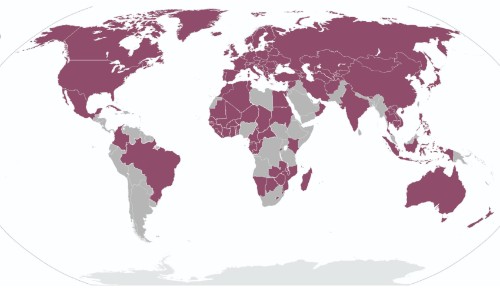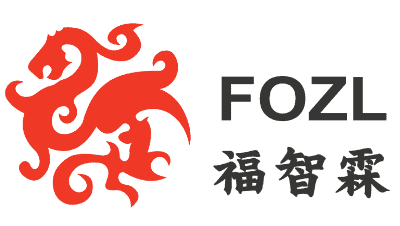
Employment Pass
2020-08-17Account Training
2020-08-17

Madrid Protocol
The Madrid Protocol is administered by the International Bureau of the World Intellectual Property Organization (WIPO) in Geneva, Switzerland.
The Madrid Protocol provides for an international registration system for trademarks. This process has the same effect as if the application for registration of the mark had been filed in each country/region designated by the applicant. The Madrid Protocol allows trademark owners to seek protection of their marks in several countries simultaneously by filing a single application in one currency (Swiss francs), in one language and for one fee, with a single office.
The Madrid Protocol is governed by the following two treaties:
- Madrid Agreement – signed in 1891, amended in Brussels (1900), Washington (1911), The Hague (1925), London (1934), Nice (1957) and Stockholm (1967), and amended in 1979.
- Protocol Relating to the Madrid Agreement Concerning the International Registration of Marks – Signed in 1989 with the aim of making the Madrid system more flexible and harmonizing it with the domestic law of certain States or intergovernmental organizations that are not yet in a position to accede to this Agreement.
The countries and organizations that join the Madrid Protocol are collectively referred to as Contracting Parties. Through this system, trademarks can be protected in a large number of countries by obtaining an international registration that is valid in each of the designated Contracting Parties.
Members of Madrid Protocol: https://www.wipo.int/export/sites/www/treaties/en/documents/pdf/madrid_marks.pdf
 Advantages of submitting an international application under the Madrid Protocol:
Advantages of submitting an international application under the Madrid Protocol:
- Applicants enjoy the ease of filing one application in only one language and paying one fee to one office, rather than filing separate applications in different languages and paying a separate fee at the trademark offices of each Contracting Party.
- Applicants do not have to wait for a positive response from the office of each Contracting Party in which they seek protection. If the trademark office of the designated country/region does not notify the applicant of any refusal within the applicable time period, the mark will be protected in the relevant Contracting Party.
- If the applicant needs to make subsequent changes to his registration, such as a change of the owner’s name or address, a change of ownership or a restriction of the list of goods and services, the changes can easily be made in a single step by filing the application with the International Bureau and paying a fee.
The Madrid system offers a number of advantages to trademark owners. Instead of filing separate national applications and paying several different (and often higher) fees in each of the countries concerned, in accordance with different national or regional procedural rules and regulations, it is possible to obtain an international registration by filing (through a national office) a single application with the International Bureau in one language (English or French) and paying a single set of fees. The maintenance and renewal of trade mark has similar advantages.
Similarly, where an international registration is transferred to a third party or other changes are made, such as a change of name and/or address, it can be recorded through a single procedural step and takes effect in all designated Contracting Parties. In order to facilitate the work of users of the Madrid system, the International Bureau has published the “Guide to the International Registration of Marks under the Madrid Agreement and the Madrid Protocol”.
The Madrid Protocol and Agreement are open to any member state of the Paris Convention for the Protection of Industrial Property (1883). The two treaties are parallel and independent, and States may accede to either or both of them. In addition, intergovernmental organizations that maintain a trademark registration office may become members of the Protocol. Instruments of ratification or accession must be deposited with the Director-General of WIPO.
Who Can Leverage on the Madrid Protocol?
An application for international registration (international application) may be filed only by a natural or legal person who has a connection with the Agreement or Protocol by reason of his establishment, domicile or nationality. An international application may be filed only if the mark has been registered in the trademark office of the Contracting Party with which the applicant has the necessary connection (known as the “office of origin”). However, where all designations are made under the Protocol (see below), the international application may be based solely on the application for registration filed with the office of origin. The international application must be filed with the International Bureau of WIPO through the office of origin.
International Applications
One or more of the Contracting Parties in respect of which protection is sought must be designated in the application for international registration. Further designations may be made subsequently. The designated Contracting Party must be a member of the same treaty as the Contracting Party whose office is the office of origin. The latter Contracting Party may not itself be designated in the international application. The designation of a particular Contracting Party may be made either under the Agreement or under the Protocol, depending on which treaty the Contracting Parties concerned are parties to. Where two Contracting Parties are members of both the Agreement and the Protocol, the designation will be governed by the Protocol. Irrespective of which treaty the international application is governed by, it may be filed in English, French or Spanish, unless the office of origin specifies that only one or two of these languages may be used. The filing of an international application is subject to the payment of a basic fee (reduced to 10% of the designated amount for international applications filed by applicants whose country of origin is a Least Developed Country (LDC) as determined by the United Nations); an additional fee for each category of goods and/or services other than the first three; and a complementary fee for each designated Contracting Party. However, a Contracting Party to the Protocol may declare that, where it is designated under the Protocol, the supplementary fee will be replaced by an individual fee, whose amount is determined by the Contracting Party concerned, but may not be higher than the fee payable for domestic trademark registration in its office.
International Registration
Upon receipt of an international application, the International Bureau examines it to determine whether it meets the requirements of the Agreement, the Protocol and the Common Regulations. This examination is limited to formalities, which includes the classification and comprehensibility of the list of goods and/or services. If there are no irregularities in the application, the International Bureau records the mark in the International Register, publishes the international registration in the WIPO Gazette of International Marks (hereafter referred to as “the Gazette”) and notifies each designated Contracting Party of the international registration. All material questions as to whether the mark is eligible for protection in a particular Contracting Party or whether it conflicts with an previously registered mark are determined by the trademark office of that Contracting Party in accordance with its applicable domestic legislation. The Gazette in its electronic form (e-Gazette) is available on the Madrid system website.
Statements Granting or Denying Protection
The office of each designated Contracting Party shall issue a statement of grant of protection under Rule 18ter of the Common Regulations. However, international registrations will be examined by designated Contracting Parties for compliance with their national laws, and if certain substantive requirements are not met, they are entitled to refuse the request for protection in their territory. Any such refusal, including a statement of the grounds for refusal, must be notified to the International Bureau, normally within 12 months from the date of notification. A Contracting Party to the Protocol may, however, declare that this period is extended to 18 months in respect of a designation made to it under the Protocol. A Contracting Party to the Protocol may also declare that a refusal based on an opposition may be communicated to the International Bureau even after this 18-month time limit. The refusal is communicated to the holder or the holder’s representative at the International Bureau, recorded in the International Register, and published in the Gazette. The procedure subsequent to a refusal (such as an appeal or a review) is conducted directly between the competent administrative authorities and/or the courts of the Contracting Party concerned and the holder, without the intervention of the International Bureau. However, the final decision concerning the refusal must be communicated to the International Bureau, which will record and publish it.
Effects of an International Registration
An international registration shall have the same effect in each designated Contracting Party from the date of the international registration as if the mark had been registered directly with the office of that Contracting Party. If no refusal is issued within the applicable time limit, or if the original notification of refusal is revoked by a Contracting Party, the mark shall enjoy the same protection from the date of the international registration as if it had been registered with the office of that Contracting Party. An international registration shall be valid for 10 years. It may be renewed further periods of 10 years on payment of the prescribed fees. Protection may be limited to some or all of the goods or services, or may be waived in respect of only some of the designated Contracting Parties. The transfer of the international registration may concern all or some of the designated Contracting Parties and all or some of the goods or services indicated.

Accounting and Corporate Regulatory Authority of Singapore licensed corporate advisory firm.
Singapore Company Registration, Annual Return, Accounting & Tax
Trademark Registration, Corporate Advisory, Serviced Offices.
6 Raffles Quay,#14-02, #14-06, Singapore 048580

